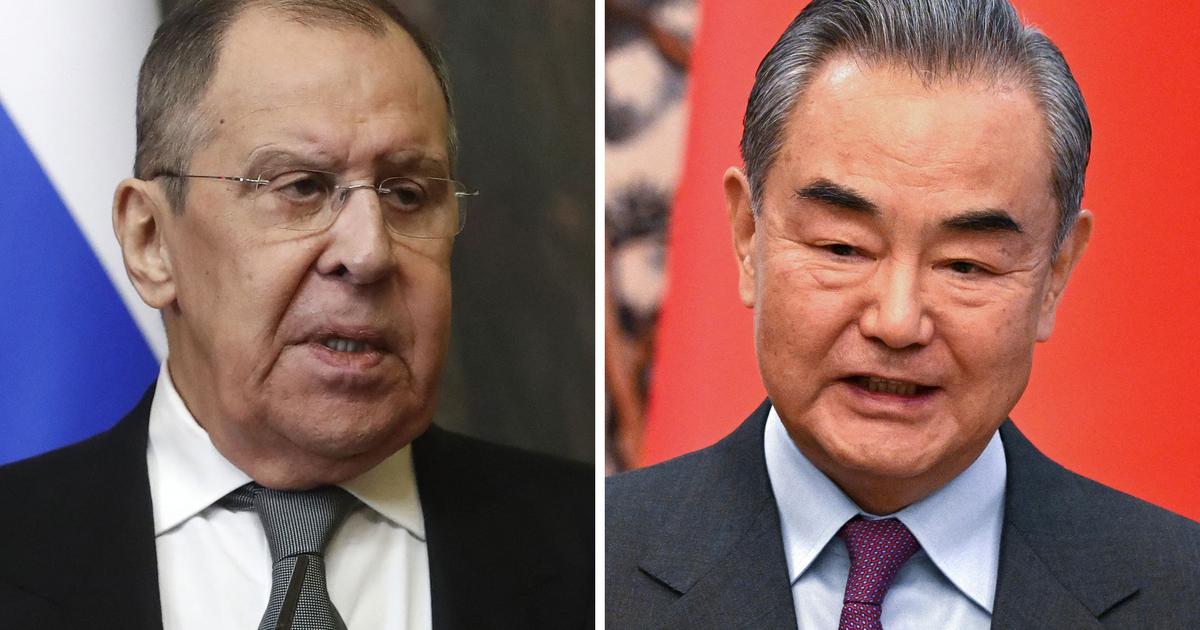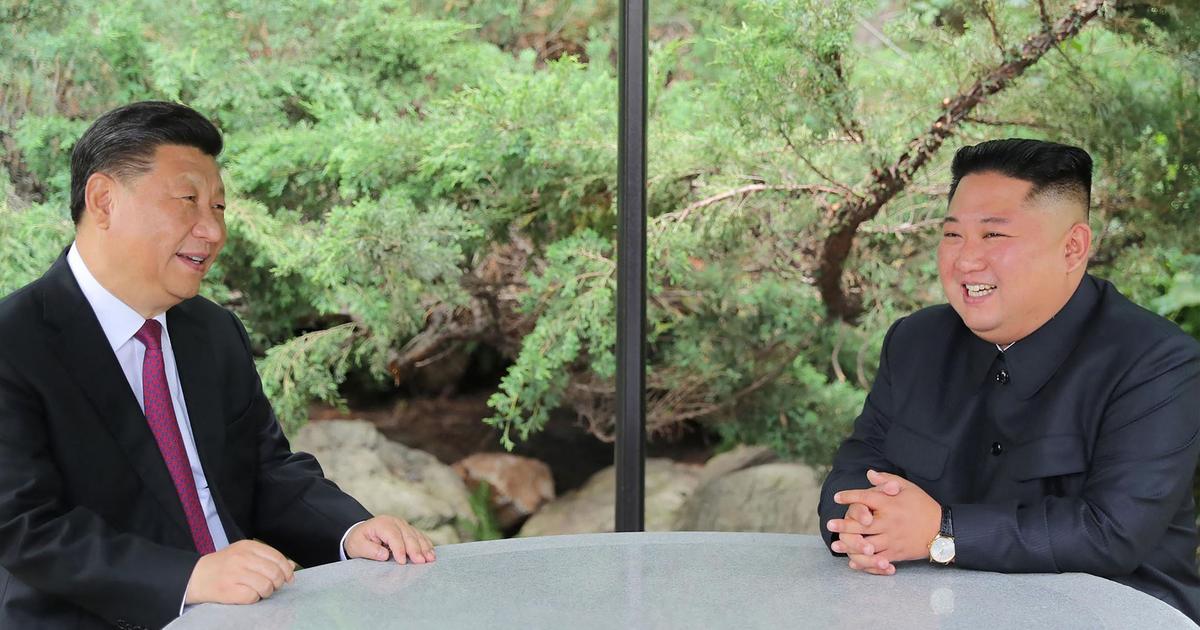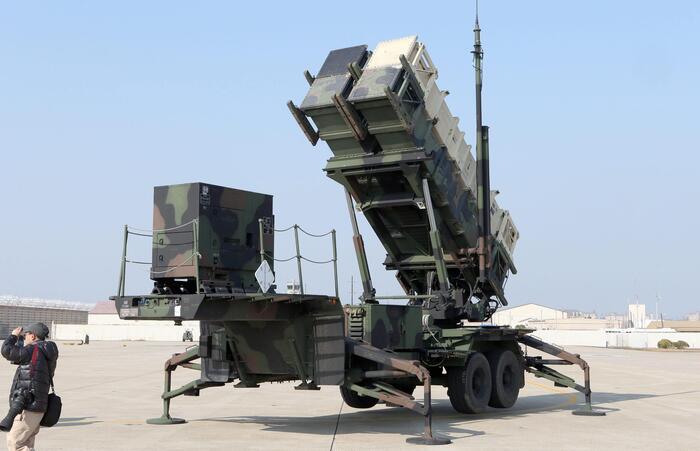CNN journalist challenges Russian official on Putin's message 3:23
Hong Kong (CNN) --
When Russian President Vladimir Putin connects to the virtual BRICS summit hosted by Beijing on Thursday, it will be the first time he has attended a forum with the heads of major economies since he launched an invasion of Ukraine. at the beginning of this year.
For Putin, this could offer a welcome sight: his glowing face on screen alongside other leaders whose countries make up this group's acronym — China's Xi Jinping, India's Narendra Modi, Brazil's Jair Bolsonaro and South Africa's Cyril Ramaphosa — a a sign that Russia, although hit by sanctions and protests over the invasion, is not alone.
It is a message that may resonate even more clearly as China and Russia, weeks before the invasion, declared that their own relationship "is boundless" and that each of the BRICS leaders has avoided openly condemning Russia, even as they have different levels of interest that they should not be seen to endorse Moscow's actions and anger Western friends.
Beneath the surface, Putin's invasion is likely to create another complication in the BRICS, a more than decade-old grouping of major emerging economies, already suffering from mistrust among its members and disparate ideologies.
China will support Russia on security, Xi tells Putin on his birthday call
But the group's decision to go ahead with its 14th annual summit reflects a view of the BRICS countries on the global order, and by extension the situation in Ukraine, that differs from that in the West, experts say.
advertising
"We are talking about some very important economies whose leadership is willing to be seen with Putin, even if it is just on a virtual platform," said Sushant Singh, a senior fellow at the Center for Policy Research (CPR) in New Delhi.
"The fact that Putin is welcome, that he is not an outcast, that he is not being expelled, and that this is a normal engagement that has taken place every year and is still taking place, that is a big plus for Putin," he said. the expert.
While countries may argue that engaging Russia is better than not, the optics only grow sharper in contrast.
The BRICS summit is followed days later by the meeting of a block of the world's main advanced economies, the Group of Seven, who have united in their voice against Russian aggression and expelled Moscow from their block after its annexation. of Crimea in 2014.
The meeting of the BRICS countries in the midst of turbulent times
Unlike the G7, the BRICS are expected to tread carefully when it comes to Ukraine at this Thursday's summit, likely speaking in favor of a peaceful resolution, even as its members may carefully ask Western countries to examine the impact of its sanctions on the global economy, observers say.
Beijing, this year's host and by far the most economically powerful of the five nations, which together account for about a quarter of global GDP, appears poised to focus on its own agenda: furthering its new security initiatives and global development and encourage a return to what it sees as the construction of "blocs" by the United States.
The BRICS countries should "strengthen mutual political trust and security cooperation," coordinate on major international and regional issues, accommodate each other's core interests, and "oppose hegemony and power politics," Xi said. a speech to BRICS foreign ministers last month, when he called on the group to boost development in this "period of turbulence and transformation."
Some of the crises of this period, such as food insecurity and a growing debt crisis in the developing world, are ones that the group, established in 2009 as a means of "serving the common interests of emerging market economies and developing countries", was apparently formed to address.
Since its inception, BRICS, which incorporated South Africa in 2011, has come together to demand greater representation of major emerging economies on the world stage, and against what it sees as disproportionate dominance by Western powers.
That has meant pushing for reforms at the International Monetary Fund and the World Bank and, at times, delivering a veiled blow to NATO actions.
Why Kaliningrad, Russia's foothold in Europe, could be the next flashpoint in its war against Ukraine
Video summary of the war Ukraine - Russia: June 21 10:19
Countries have also been seen discussing issues such as how to settle trade in their own currencies, outside of the US dollar system, an issue that may now have more relevance for the BRICS following Western sanctions against Russia, according to Shahar Hameiri, a professor. and political economist from the University of Queensland in Australia.
Those sanctions have cut off Russia's central bank from most US dollar transactions, sanctioned banks and removed major institutions from the international banking systems.
That has left countries that continue to do business with Russia scrambling to find ways to avoid violating sanctions.
Both India and China remain big buyers of Russian fuel.
"There's not going to be any full embrace of Russia (at this summit), there's no question about it, and I'm sure there's going to be a lot of awkwardness there...but behind the awkwardness (de-dollarization) is an area where these governments have a shared interest," Hameiri said.
"Any kind of significant steps away from (a US dollar-denominated system) are potentially significant."
ANALYSIS |
China is under alert by the Quad strategic security group, but its warnings only strengthen it
cross purposes
Despite some common interests, the BRICS group has long been plagued by cohesion issues, given the vast differences in its members' political and economic systems, and their divergent geopolitical interests.
Furthermore, the complexities of Russia's invasion of Ukraine may temper any major outcome of this week's summit, even as, with the exception of Brazil, the BRICS nations except Russia abstained from voting on a UN General Assembly resolution. the United Nations supported by 141 countries that asked Moscow to withdraw from Ukraine.
China, for its part, has accused NATO of provoking Russia into attacking Ukraine, while similar rhetoric has circulated in public debate in India.
In South Africa, Ramaphosa told lawmakers earlier this year that the war could have been avoided if NATO had "heeded the warnings" about considering Ukraine's membership in its bloc.
And while Brazil voted to condemn Russia's aggression against Ukraine at the UN, its leader Bolsonaro has backed away, saying days before the country would remain "neutral."
Under normal circumstances, China would take the usual steps, promoting the BRICS as "a kind of soft alternative to the G7" and trying to "portray the BRICS as a leader for the developing world...against the club of capitalist democracies." rich, according to China-Russia relations analyst Alexander Gabuev, which would include members backing each other's key projects, he added.
"Now it's harder to do because Putin is in the room," said Gabuev, a senior fellow at the Carnegie Endowment for International Peace.
Meanwhile, a long-standing source of internal friction within the BRICS remains unresolved: tensions between India and China, which in 2020 escalated into a violent border clash.
On the one hand, BRICS has been a "way to secure some sort of engagement with China" for India, according to CPR's Singh.
And this remains critical as New Delhi is wary of provoking Beijing, especially as it has partnered with the US, Japan and Australia in its Quad security grouping and is increasingly seen by the US as part of its strategy to counter Beijing. Chinese, he said.
the expert.
But these ties also make India more reluctant to endorse major outcomes of a BRICS summit.
"I would be surprised if any substantive initiatives are announced, because India would then be sending a message to the Quad and its Western partners that it is willing to work very closely with China and Russia," he said.
"That would make India's position very difficult."
Another question is how other nations in the bloc will see a push, long under discussion and expected to be spearheaded by China at Thursday's summit, to expand the bloc to include more developing countries.
In a meeting with his BRICS counterparts last month, Chinese Foreign Minister Wang Yi called on the group to start an "expansion process" of member countries.
Such an expansion could influence the perception in some quarters that the West has displayed a double standard in the way it upholds international standards, according to Gabuev of Carnegie Endowments, who says this has fueled the argument that the developing world, in Instead, it should formulate those rules.
"Bringing more countries on board is something that gives it more legitimacy, but again, if that will go beyond symbolism for now, I'm not so sure," he said.
BRICS Vladimir Putin








